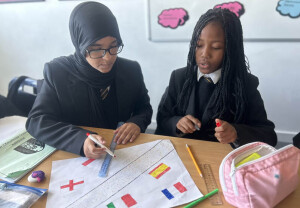Modern Foreign Languages

CURRICULUM ETHOS
At Eastbrook School, we aim to foster a lifelong passion for languages and enable students to become confident, capable, and culturally aware learners. Studying French or Spanish gives our students the skills to communicate effectively and the understanding to connect with people around the world.
Our language curriculum is ambitious and inclusive. It helps students build confidence, fluency, and independence, while learning to use the language skills naturally in real situations. We place great importance on exploring the cultures of French and Spanish speaking countries. This encourages students to appreciate different ways of life and to develop curiosity, respect, and open-mindedness.
Through learning a language, our students grow as global 21st century citizens - confident, empathetic, and ready to thrive in an increasingly connected world.
The MFL Curriculum in Summary
The MFL curriculum builds on what students already know. Vocabulary, grammar, phonics, and language skills are introduced step by step. Lessons review past learning and give students chances to use vocabulary and grammar in creative ways.
At Key Stage 3, students develop a solid foundation in the target language. In Year 7, they revisit essential vocabulary such as numbers, the alphabet, days, and months, and learn how to introduce themselves and talk about familiar topics like family, school, town, and sports. They begin to use the present tense confidently, give simple opinions, and focus on pronunciation and sound–symbol links to build accuracy and confidence. As they move into Years 8 and 9, students start using new tenses, including the perfect, near future, imperfect, and conditional, allowing them to communicate across different time frames. They explore themes such as holidays, celebrations, and global issues, and learn to justify their opinions in more detail. Throughout Key Stage 3, students develop their reading and listening skills through increasingly authentic texts, preparing them for the demands of the GCSE course.
At Key Stage 4, students build on what they have learned in KS3 and continue to develop their speaking, listening, reading, and writing skills by exploring a wide range of GCSE topics such as the local area, well-being, holidays, school life, and future plans. They become more confident using a variety of tenses and complex grammar structures, helping them to communicate more creatively and accurately. Authentic materials and cultural topics deepen their understanding of the language and the countries where it is spoken. Students are encouraged to express and justify their opinions clearly, both in writing and in speaking. By the end of Year 11, they are able to use their language skills with confidence, demonstrating fluency, accuracy, and equipping them with the skills needed to succeed in their GCSE exams and to continue studying the language further.
An All-Through Curriculum
Our all-through curriculum is designed as a seamless journey from primary to secondary school. By the end of Year 6, students have learned key strategies to remember words and phrases and can use basic reading and listening skills in French or Spanish. In Year 7, we build directly on this foundation, revisiting familiar vocabulary, sounds, and grammar, while students begin to talk confidently about themselves and everyday topics. Throughout KS3, learning is carefully recycled and extended, with students developing all four language skills listening, speaking, reading, and writing, while gradually developing their understanding of grammar concepts such as tenses and sentence structure. At KS4, students deepen their knowledge, exploring more complex grammar and vocabulary, and apply their skills through authentic texts, literary materials, and exam-style tasks. This all-through approach ensures learning is continuous, confident, and prepares students to succeed in GCSE French and beyond.
Diversity and Inclusion in the MFL Curriculum
The MFL curriculum has been adapted to recognise and celebrate the achievements and contributions of people from all diverse walks of life, in particular the protected characteristics. We recognise that it is essential for us to recognise contributions made from all people, and for us to plan and deliver a curriculum that over time reflects our diverse cohort and promotes our PROUD values.
We have diversified our French and Spanish curriculums. For example, In Autumn term in Year 10, ‘La personne que admire’ unit includes a range of role models from the under-represented backgrounds where students create a presentation for the class about a person that they admire the most. In Year 8 our French ‘Zoom sur le cinema’ unit, pupils learn about the significant contributions from French actors who are from different backgrounds and religions, for example Jamel Debouze, who is of Moroccan and Muslim origin and Omar Sy from Africa.
We have increased our number of cultural activities related to famous French and Spanish musicians from ethnic minority backgrounds during our extra-curricula learning, including Stromae, who continues to raise awareness about French language and culture around the world. The MFL curriculum has been adapted to recognise and celebrate the achievements and contributions of ethnic minorities people to languages. Teachers regularly raise awareness and aspiration by discussing high achievers, famous bilingual peoples around the world.
Cultural Capital and Enrichment in the MFL Curriculum
In MFL, we don’t just teach French and Spanish, we show students why languages matter. Students are taken on educational visits, for example to the French Institute, and we run a lunchtime Language Club where they can practise speaking in a relaxed, fun way. We celebrate Francophonie Weeks and European Day of Languages, for example through cultural activities, quizzes, and presentations, bringing real-world experiences into the classroom. In Year 9 and Year 11, we deliver modules on future ambitions, CVs, interviews, and careers, helping students see how languages link to real jobs and opportunities. We invite Eastbrook Alumni students and university speakers, for example Oxford students, to share their stories and inspire students. Through all of this, we help students build confidence, cultural awareness, and practical skills that stay with them long after they leave school.
Literacy and Oracy in the MFL Curriculum
French and Spanish curriculums support English literacy and oracy by regularly helping students to develop their skills in reading, writing and communication. We embed literacy almost in every lesson through the constant use of correct terminologies to explain grammar and syntax. We always encourage students to use formal English and to use more “ambitious” words, often drawing attention to links between English and the Target Language.
Our strategies for accurate spelling, memorising, retention of new vocabulary, making links, understanding, and manipulating grammar structures boost transferable skills and knowledge that some learners have not yet managed to grasp in English. We aim for our students to learn to value grammar and language construction.

